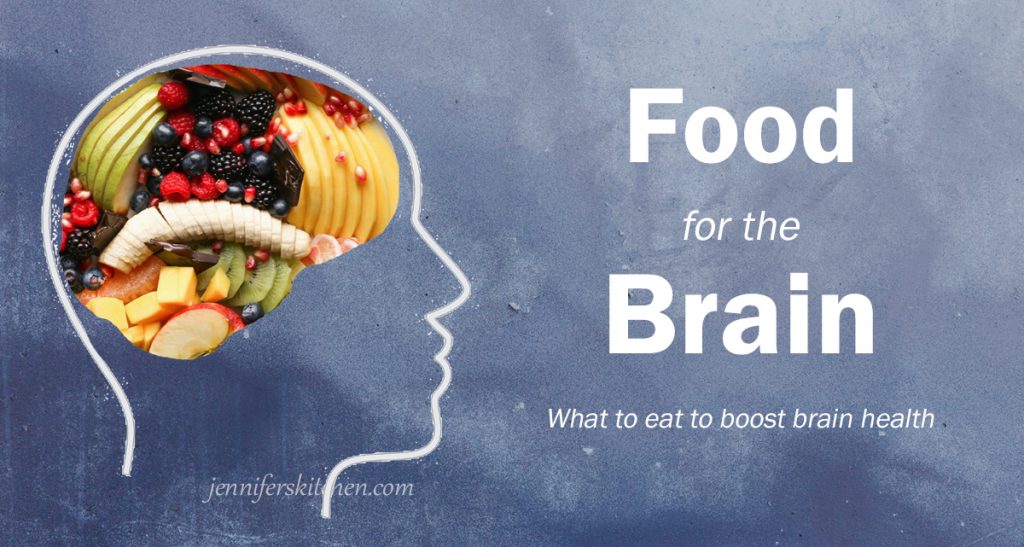
The brain is the most complex organ of the human body. It’s also a very hungry organ. The brain gobbles up about 20 percent of your daily calorie intake. And research shows that the food we eat directly affects the structure and function of our brain.
But can certain foods actually improve memory, help us concentrate, make us more intelligent, and help us think more clearly?
Research says positively yes.
We can make our brains work better simply by feeding them the right foods. Here, some smart foods to add to your meals this week.
The Brain Diet
Fruits
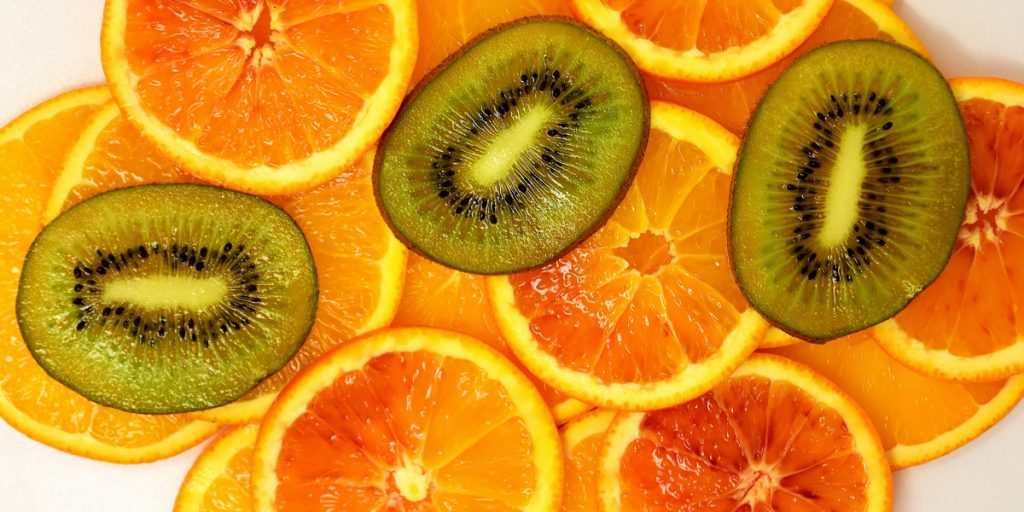
Fruit – and especially berries – contain critical minerals, vitamins, antioxidants, flavonoids, polyphenols, and a host of other important phytonutrients that enhance communication between brain cells, improve memory, and slow down the aging of the brain.
How Much Fruit Should You Eat for a Healthy Brain?
Depending on your age, gender, and body size, you should aim to eat about 2 to 3 cups of fruit per day. Just one cup of berries a day can produce measurable cognitive effects – within just hours of eating them!
Delicious Ways to Eat More Fruits
Sugar-Free Berry Breakfast Bars
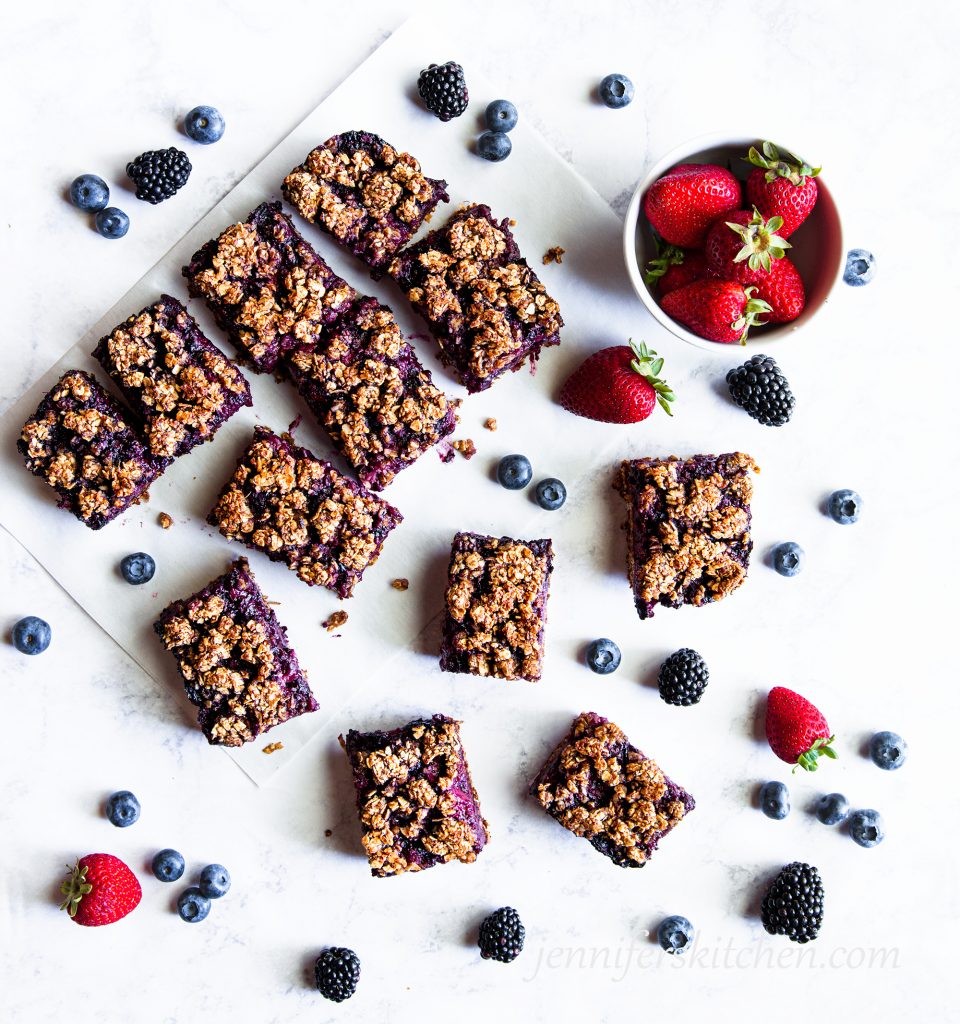
Strawberry Oatmeal
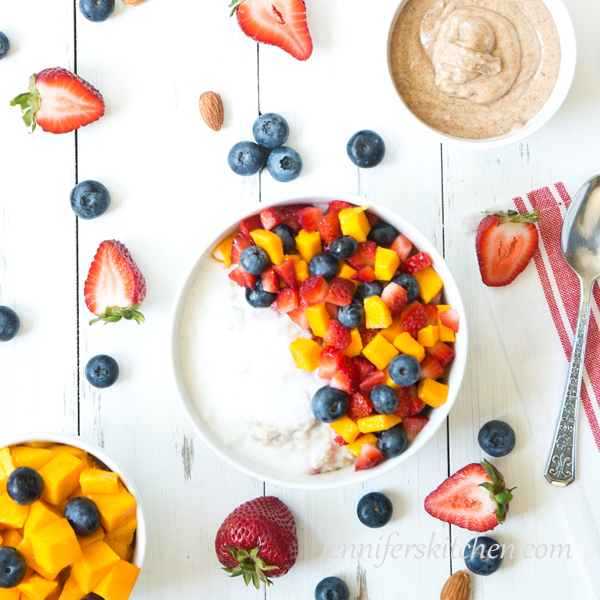
Vegetables
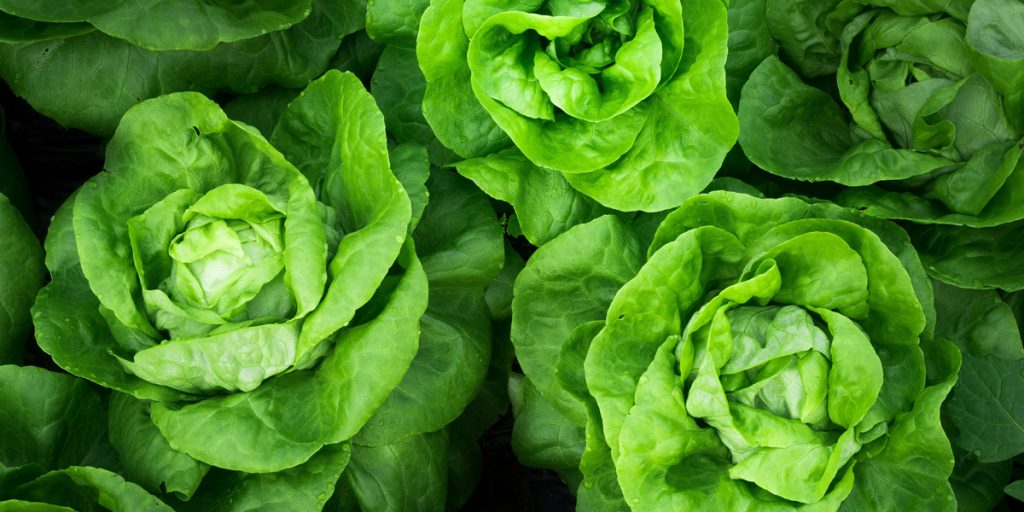
Vegetables such as cabbage, broccoli and leafy green vegetables are rich in many brain-beneficial nutrients and have been shown to improve memory and slow the rate of cognitive decline.
In one study where researchers compared the cognitive abilities of 960 individuals for an average of 5 years, they found that those who ate 1 cup of cooked or 2 cups of raw greens a day had the cognitive abilities of a person 11 years younger than those who did not consume leafy greens.
How Many Vegetables Should You Eat for a Healthy Brain?
Depending on your age, gender, and body size, you should aim to eat about 2 to 3 cups of vegetables per day.
Delicious Ways to Eat More Vegetables
Kale and White Bean Soup

Power Salads

Whole Grains
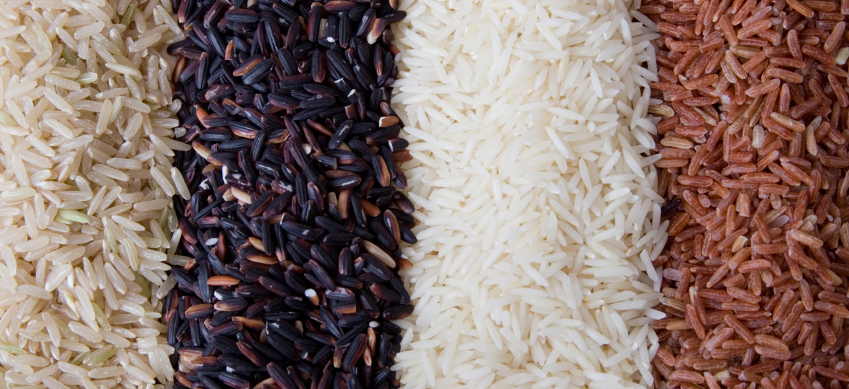
Whole grains, such as oats, millet, buckwheat, and quinoa are rich in many of the B vitamins that work to reduce inflammation of the brain, increase the production of neurotransmitters, and encourage cellular detoxification.
Whole grains are also an excellent source of complex carbohydrates which provide steady fuel for the brain and increase alertness. And A diet encourages a steady production of serotonin.
How Much Whole Grains Should You Eat for a Healthy Brain?
Depending on your age, gender, and body size, you should aim to eat about 4 ounces of whole grains per day. An ounce of whole grains would be equivalent to about 1/2 cup of cooked grains (such as oatmeal or buckwheat or quinoa), or 1 slice of whole-grain bread, or half of one of these Wonderful Waffles.
Delicious Ways to Eat More Whole Grains
Sugar-Free Banana Breakfast Bites
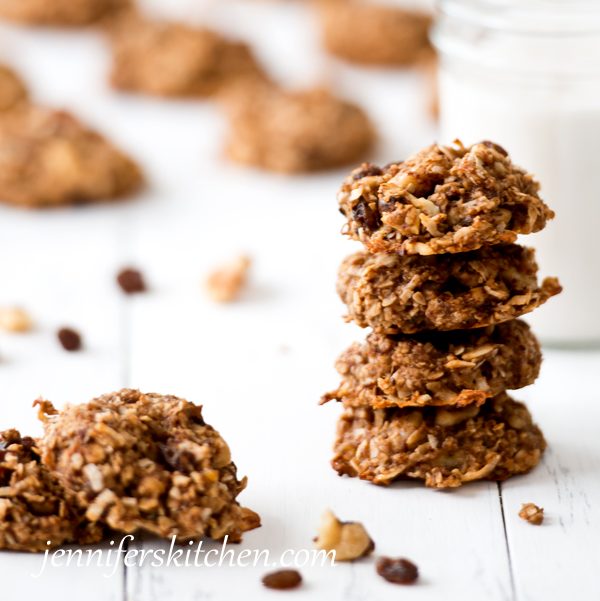
Wonderful Waffles
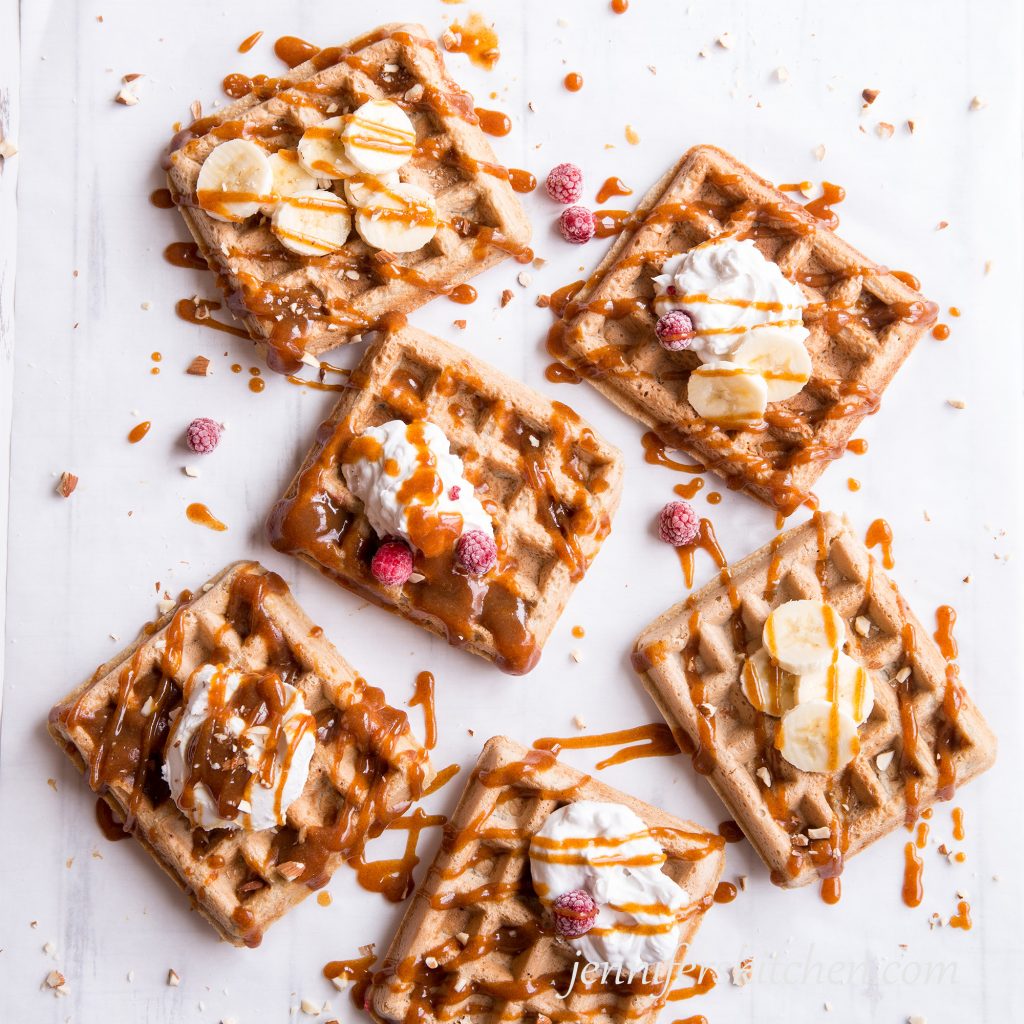
Nuts and Seeds
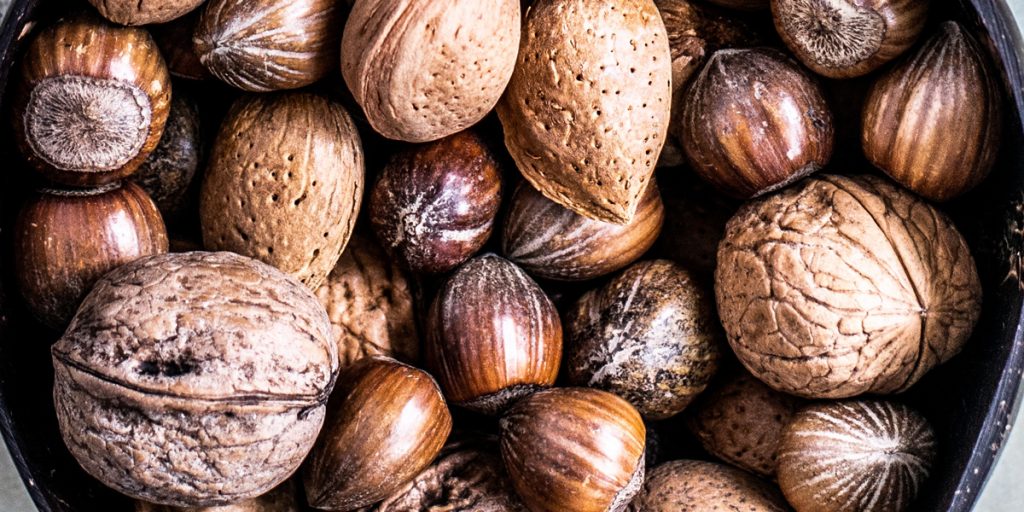
Flax seeds, chia seeds, walnuts, and hemp seeds all contain omega-3 fatty acids, an important nutrient for the brain that appears to reduce the risk for dementia.
How Much Nuts and Seeds Should You Eat for a Healthy Brain?
Because nuts and seeds are a concentrated source of nutrients, we really only need a small amount of these foods. About 1 to 2 tablespoons per day will supply the nutrition your brain needs.
Delicious Ways to Eat More Nuts and Seeds
Basil Flax Salad Dressing
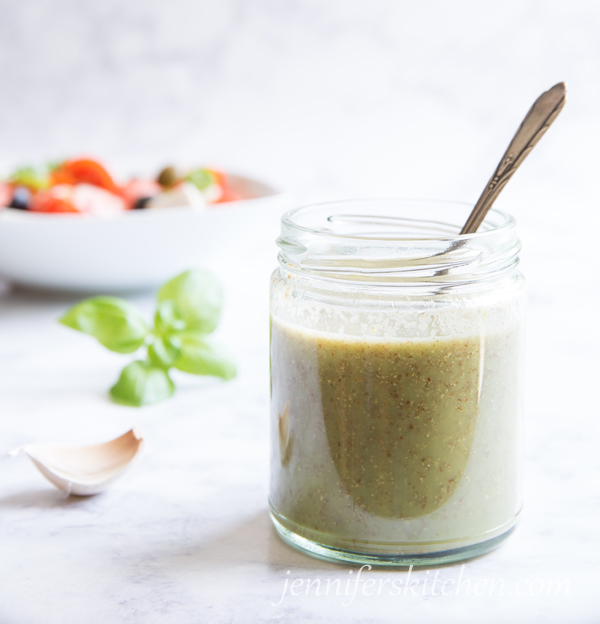
No-Bake Walnut Fig Bites
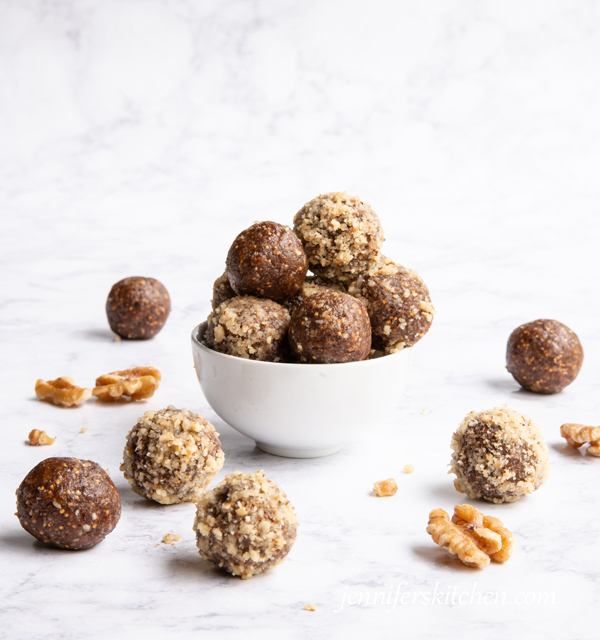
The Meal Plan for Your Brain
A healthy diet for your brain involves more than what you eat. It also has to do with when you eat.
Breakfast
You’ve heard that breakfast is the most important meal of the day, but is it true?
Absolutely. And it’s even more true when it comes to brain function. Research shows that eating a healthy breakfast improves creative thinking, memory, attention span, and more.
For the healthiest brain function, breakfast should be the largest meal of the day.
Fresh fruit and whole grains provide fiber, antioxidants, and long chain molecules of healthy carbohydrates that the body gradually breaks down and supplies your brain with the steady supply of fuel it creates to function on.
Get some healthy breakfast ideas and recipes.
Lunch
Lunch should be the second largest meal of the day, and lunch time is a great time to get some of those leafy greens.
Get some healthy lunch ideas and recipes.
super
When you eat light in the evening (which is a form of intermittent fasting) your body goes through some remarkable changes that make a tremendous impact on brain health and function.
Allowing your digestive system to rest in the evening and nighttime hours increases the brain’s natural growth factors, which promotes the growth of neurons and neural connections, which improves brain function and promotes neuroplasticity.
It also improves memory. When digestion is not complete before lying down for the night, there is interference with memory consolidation.
water
Stress can really take a toll on the brain, but drinking plenty of water can reduce stress hormones. Most people need at least 80 ounces of water a day, but if you sweat a lot or live in a dry climate, you will need more. Drink enough water to keep your urine color almost clear.
Tea and juice do not count towards water consumption. The body needs pure water.
Be sure to drink plenty of water between meals. Taken with food water diminishes the flow of the salivary glands and dilutes the digestive fluids, thus hindering digestion (which can cause all kinds of digestive problems later on).
Foods to Avoid
Just as there are certain foods that improve brain health, there are others that can contribute to poor brain function. Here are some foods you want to avoid if you want your brain to function at its best.
Refined Foods
The consumption of refined foods (sugar, white flour, white rice, and juice, etc.) causes a prostaglandin imbalance in the brain. Prostaglandins are powerful hormone-like substances that have many functions in the body, including controlling inflammation in the brain. (Prostaglandin levels tend to be higher in the brains of Alzheimer’s patients.)
Another problem with refined foods is their effect on blood sugar levels. Whole foods, such as whole grains, beans, whole fruits (not juice), and vegetables provide the brain with a steady source of energy. But refined foods, such as sugar, white flour, white rice, and juice cause blood sugar levels to become less stable, which negatively affects the brain. These foods cause a spike in blood sugar levels quickly followed by a decline in the same, which leads to a decline in brain energy and a decrease in ability to focus.
Caffeine
The pituitary gland at the base of the brain interprets the caffeine-induced spurt of brain activity as an emergency warning, which prompts the body to produce adrenaline. Adrenaline may give you more energy, but its long-term effects are damaging to the brain. The brain becomes more prone to anxiety and struggles to think clearly, and the ability to resist temptations is hindered.
Animal Products
Saturated fats, which are found in meat, dairy products, and eggs, are closely linked with cognitive decline.
Animal products have also been shown to contribute significantly to high blood pressure and high cholesterol, both of which damage small blood vessels in the brain, causing brain cells to die over time.
What about supplements for the brain?
An abundance of research has been conducted to determine whether supplements can improve brain health, and while the results vary, the basic common thread that we see in all this research is that the body was designed to consume real food, not supplements. In fact, in some cases, supplements have been shown to actually cause more harm than good.
For example, in one double-blind study where participants were given either a DHA supplement (a nutrient that improves memory) or a placebo, researchers found that those who were given the supplement actually had worse memory than those taking the placebo.
You can read more about the dangers of supplements here.

Health Food Healthy Brain
The brain thrives on whole, plant-based foods. And revolving your diet around these healthy foods encourages good blood oxygenation, contributes to enhanced memory capabilities, better ability to deal with stress and new situations, and less risk of stress or diet-related dementia.
